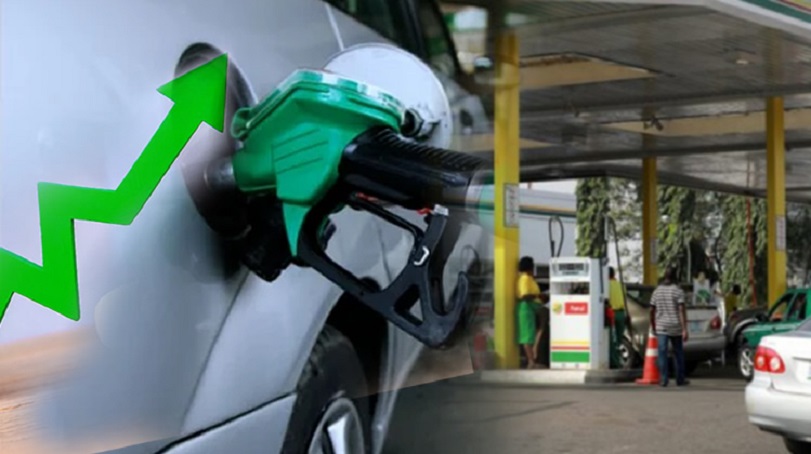Economy
UK-Kenya Renewable Energy Conference

Kenya’s renewable energy sector is on the cusp of big things. With a Government committed to a 5000Mw plan by 2017; an established feed-in-tariff; and an increasing demand for electricity as industrialisation continues at pace, the conditions are set for geothermal, wind and solar power to take off in a big way.
Two main forces are driving this change.
First is the enviable economic growth that Kenya has enjoyed in recent years, and is forecast to maintain in the future.
Rapid economic growth will drive greater demand for power: from businesses, to produce goods and services; and from consumers as they buy more TVs, fridges, freezers and other goods.
Kenya already has a renewable-rich energy mix, and is looking to continue this.
The second driver is that global climate change policy is stimulating increased take up of renewable energy around the world. This is leading to extraordinary and enormous economies of scale and efficiencies.
Last year the Paris climate negotiations sent a clear message to the world – to governments, to businesses, investors and citizens – that the future is low carbon. It created a surge in market demand for renewable energy.
You would expect rising demand to drive prices up. But technology and innovation are doing the opposite, so increasing demand further. In the world of computers we’re familiar with Moore’s law: namely that processing speeds for computers will double every two years, with prices falling. We’re seeing something similar in renewables. 30 years ago, wind turbines were generally rated around 50kw. 15 years ago we were getting used to 2000kw (2Mw) turbines. Now, in the North Sea, we’re expecting 8Mw monsters offshore.
Prices are falling similarly: solar panels now make up less than half the cost of the average PV installation. My Deputy High Commissioner is still fuming at the £13,000 he paid to put 4kw on his roof in 2011 – something that might now cost only £5,000. Offshore wind costs are another example of this. The UK agreed a strike price of £140 per Mw/hour for offshore wind as recently as 2014. In the Netherlands the most recent auction saw suppliers coming forward to supply offshore wind for just £70 per Mw/hour.
As a result of these changes, the UK now has three times more offshore wind – over 5000 Mw – than the entire generating capacity of the Kenyan grid. UK installed solar capacity – and let’s face it, the UK isn’t a sunny country – is over 10Gw – a 1400% increase on as recent as 2011.
As innovation pushes costs down, the implications for Kenya are clear. Renewables will not simply be environmentally beneficial, but economically advantageous. In time, they will push out hydrocarbons.
The UK and Kenya are together at the vanguard of this renewable energy, clean technology and innovation revolution. Kenya has one of the most active renewable energy sectors in Africa – second only to South Africa in terms of investment. The UK is a global leader in many of the sectors for which Kenya has greatest demand, as well as leading the way in innovative new technology such as wave power, tidal stream, pump storage and grid-scale flow batteries.
Kenya has set ambitious targets to boost its energy mix as part of the Energy Pillar in Vision 2030. As it continues to strive with regional competitors like Ethiopia, it wants to keep energy costs down. Renewables will enable this. And UK companies should be at the heart of this. From project development to design, finance and investment, legal and security, R&D and consulting; to grid development, transmission and distribution – UK companies have the expertise to help Kenya achieve success.
The energy market of tomorrow will – and must – look fundamentally different to yesterday. Out goes an industry dominated by giant utilities; a monopoly of centralised energy models. In comes a new, diverse market; driven by innovation, with an entrepreneurial, dynamic set of market participants. Put simply, new actors, new investors, new technology.
Let me say something about how all this connects to Kenya’s development agenda, of which the UK is such a strong supporter. A reliable electricity supply is one of the most powerful tools for helping people lift themselves out of poverty. Yet two out of three people in Sub-Saharan Africa are currently living without electricity access.
Twenty years ago, there was a nine month wait in Kenya for a monopoly provided land telephone line. Then Safaricom arrived on the scene. In just ten years we have seen a total transformation of the way in which Kenyans communicate – the mobile revolution. Now we need – and I am convinced that we will see – a similar revolution in access to affordable clean energy over the next ten years.
This will require governments, investors and aid agencies to tear down regulatory barriers and attract new finance. It will require us to develop markets where lower costs for renewable energy filter through to consumers because of genuine competition between suppliers.
The private sector has an opportunity to show the way in turning development challenges into business opportunities. A few years ago, seed funding from UK Aid working with Vodaphone and Safaricom helped create a mobile payment platform called M-PESA. Today that platform processes nearly half of Kenyan GDP, and means three in four Kenyans have access to the financial system.
This is the kind of country where those transformational things can be done. Let’s work together to make them happen.
Economy
Subscription for FGN Savings Bonds Opens for March 2026 at 13.9%

By Aduragbemi Omiyale
The Debt Management Office (DMO) has asked retail investors interested in investing in the FGN savings bonds to begin to talk to their financial advisers.
This is because subscription for the retail bonds for March 2026 has commenced and will close on Friday, March 6, according to a circular issued by the agency on Monday.
The debt office is selling two tenors of the debt instrument, with the shorter note maturing in two years’ time and the longer maturing a year later.
Details of the notice showed that the two-year paper is being offered at a coupon of 12.906 per cent, and the three-year paper at 13.906 per cent.
Both notes are sold at a unit price of N1,000, with a minimum subscription of N5,000 and in multiples of N1,000 thereafter, subject to a maximum subscription of N50 million. They can be purchased via approved stockbroking firms in Nigeria.
The FGN savings bond qualifies as a security in which trustees may invest under the Trustee Investment Act. It also serves as government securities within the meaning of the Company Income Tax Act (CITA) and the Personal Income Tax Act (PITA) for tax exemption for pension funds, amongst other investors.
It can be used as a liquid asset for liquidity ratio calculation for banks, and is listed on the Nigerian Exchange (NGX) Limited for trading at the secondary market.
The bond is backed by the full faith and credit of the Federal Government of Nigeria (FGN) and charged upon the general assets of the country.
Economy
Nigeria Splits OPL 245 into Four Blocks for Eni, Shell

By Adedapo Adesanya
Nigeria has broken up the OPL 245 oil block into four new assets to be operated by Eni and Shell, potentially settling the future of the field at the centre of one of the oil industry’s biggest historic corruption trials.
According to Reuters, the agreement clears the way for the development of OPL 245, one of Nigeria’s biggest deepwater reserves that has remained untapped for almost three decades amid overlapping lawsuits in multiple countries.
The final contracts are expected to be signed starting Monday, the report said, citing a source familiar with the situation.
The Nigerian government had signalled for years that it was keen to find a solution that would bring the block into production. The source wished to remain anonymous as they are not authorised to comment on government policy before an official announcement.
Located in the Niger Delta’s deepwaters, the field has languished since its initial award in 1998 to Malabu Oil and Gas, a shadowy firm controlled by Mr Dan Etete, Nigeria’s oil minister at the time. The block is estimated to hold up to 9 billion barrels of oil equivalent in reserves—enough to rival Nigeria’s entire proven reserves if fully developed.
Mr Etete controversially awarded the lucrative licence to his own company for a nominal $20 million fee, sparking immediate controversy over conflicts of interest.
The saga escalated in 2011 when Malabu sold its rights to a Shell-Eni joint venture for $1.3 billion.
Italian and Nigerian prosecutors alleged that over $1 billion of that sum was siphoned off through bribes to politicians, middlemen, and Mr Etete himself, including hefty payments to then-President Goodluck Jonathan’s associates.
The two European energy giants and some of their former and current executives, including Eni CEO, Mr Claudio Descalzi, faced trial in Italy but all were acquitted in 2021, having denied all wrongdoing.
Shell and Eni have consistently denied wrongdoing, insisting the payments complied with due diligence.
The anti-graft agency, the Economic and Financial Crimes Commission (EFCC), has pursued parallel probes, recovering over $200 million in frozen funds, but progress stalled amid political shifts.
Operations at the Nigerian oil block have been halted for more than a decade by a series of trials and competing legal claims.
In 2023, the federal government withdrew civil claims totalling $1.1 billion against Eni, ending the long battle.
Economy
Dangote Refinery, NNPC Raise Petrol Pump Price by N100

By Modupe Gbadeyanka
The price of Premium Motor Spirit (PMS), otherwise known as petrol, has been increased by at least N100 per litre at the pump.
This followed the recent increase in the price of crude oil in the global market as a result of the bombardment of Iran by the United States and Israel over the weekend.
The air strikes killed the Supreme Leader of Iran, Mr Ayatollah Ali Khamenei, and several others.
Iran has responded by firing missiles at US facilities in some Gulf countries, including Saudi Arabia, Qatar, Kuwait, Bahrain, the UAE, and others.
Crude oil prices rose to about $80 per barrel on the market from about $70 per barrel before the Middle East crisis.
Oil marketers in Nigeria have responded to the tension and have raised the prices of petroleum products.
At most MRS Oil retail stations in Lagos, the new price notice showed an increase of about N100 per litre.
As of Monday, the price of PMS was N837 per litre, but on Tuesday morning, it had changed to N938 per litre, while at NNPC retail stations, it was N930 per litre instead of the previous N830 per litre.
-

 Feature/OPED6 years ago
Feature/OPED6 years agoDavos was Different this year
-
Travel/Tourism10 years ago
Lagos Seals Western Lodge Hotel In Ikorodu
-

 Showbiz3 years ago
Showbiz3 years agoEstranged Lover Releases Videos of Empress Njamah Bathing
-

 Banking8 years ago
Banking8 years agoSort Codes of GTBank Branches in Nigeria
-

 Economy3 years ago
Economy3 years agoSubsidy Removal: CNG at N130 Per Litre Cheaper Than Petrol—IPMAN
-

 Banking3 years ago
Banking3 years agoSort Codes of UBA Branches in Nigeria
-

 Banking3 years ago
Banking3 years agoFirst Bank Announces Planned Downtime
-

 Sports3 years ago
Sports3 years agoHighest Paid Nigerian Footballer – How Much Do Nigerian Footballers Earn






















